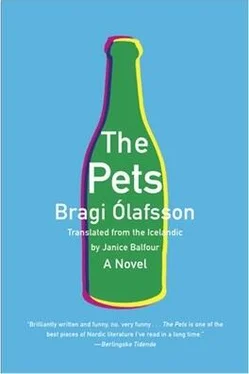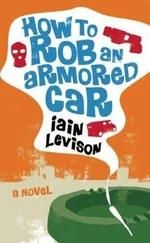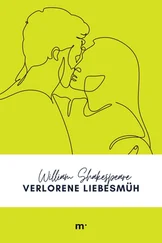Bragi Ólafsson - Pets
Здесь есть возможность читать онлайн «Bragi Ólafsson - Pets» весь текст электронной книги совершенно бесплатно (целиком полную версию без сокращений). В некоторых случаях можно слушать аудио, скачать через торрент в формате fb2 и присутствует краткое содержание. Год выпуска: 2008, Издательство: Open Letter, Жанр: Современная проза, на английском языке. Описание произведения, (предисловие) а так же отзывы посетителей доступны на портале библиотеки ЛибКат.
- Название:Pets
- Автор:
- Издательство:Open Letter
- Жанр:
- Год:2008
- ISBN:нет данных
- Рейтинг книги:5 / 5. Голосов: 1
-
Избранное:Добавить в избранное
- Отзывы:
-
Ваша оценка:
- 100
- 1
- 2
- 3
- 4
- 5
Pets: краткое содержание, описание и аннотация
Предлагаем к чтению аннотацию, описание, краткое содержание или предисловие (зависит от того, что написал сам автор книги «Pets»). Если вы не нашли необходимую информацию о книге — напишите в комментариях, мы постараемся отыскать её.
Pets — читать онлайн бесплатно полную книгу (весь текст) целиком
Ниже представлен текст книги, разбитый по страницам. Система сохранения места последней прочитанной страницы, позволяет с удобством читать онлайн бесплатно книгу «Pets», без необходимости каждый раз заново искать на чём Вы остановились. Поставьте закладку, и сможете в любой момент перейти на страницу, на которой закончили чтение.
Интервал:
Закладка:
I’m not sure if I imagined it but I felt as if she had given me some kind of signal with her eyes when she smiled at me. I was quite certain I wouldn’t be able to shake this woman out of my mind straight away. There was a rather heavy, heady perfume floating in the air that appealed to me straight away; she had brought her perfume in her toilet bag and had decided to use it after our conversation.
She looked back at me once, later on in the flight, and we smiled politely at each other.
Armann didn’t wake up until the captain announced that we were descending and that there were fourteen degrees of frost in Keflavik. Several passengers shivered at the very thought of it. But Armann didn’t seem to be very cold, he had clearly sweated while he slept, and I noticed that the woman by the window, who had just woken up too, couldn’t help smiling when she saw the beads of perspiration on the forehead of this overdressed man.
Armann didn’t say a word until we were just about to touch down. Then he suddenly started talking, and it was quite obvious that he was nervous. Out of the blue he began to tell me about a bartender he had met in his hotel in London. He had been chatting to him late one evening and the bartender — who had the same surname as both the Prime Minister of England and the author of Animal Farm (that is, before he assumed his “nom de plume”) — had told him a little story that explained why he had turned to heavy drinking and smoking as a young man. One of his teachers in secondary school had been a strict teetotaler, and just before he bade farewell to his pupils, who were going off to grapple with life or on to other educational institutions, he wanted to show them once and for all the destructive nature of alcohol and tobacco. He placed three glasses of water on his desk, and added alcohol to the first and nicotine to the second, leaving the third uncontaminated, just pure water.
“If one can talk about pure water in England,” Armann added in an aside.
Then the teacher opened a little cardboard box, and pulled out a black insect, which was about the size of a cigarette filter, with a pair of tweezers.
By now the airplane had come to a halt and people had started to pull down their belongings from the overhead bins. I asked Armann to excuse me while I got down my bag and, because I didn’t want to block the flow of passengers on the way to the exit, I tried to signal to him that I had to leave without hearing the rest of the story. Armann had also stood up and wiped his hand across his sweaty brow. Though he was well into his story about the bartender, he still looked rather sleepy and it was obvious that he wasn’t enjoying this part of the journey very much.
12
The bartender seemed to be keeping a close eye on what was happening at the table. No sooner had he said, “For God’s sake, let’s have no trouble,” than a hand gripped the shoulder of the man who had mentioned the contract and pulled him out of his seat. The cigarette fell from his hand and it was difficult to see what upset his companions more: the hot ashes that scattered over the table or the assault. The pale, sickly fellow was shaken about for several seconds, as if the ground under his feet was rocked by sharp tremors, and then his companions stood up to help him; one of them — the one who had tried to explain that his friend was in a bad way — was quick to act, but the other, who had obviously drunk more than the rest of them, took longer to heave his body up off the chair. The man who now held the weakling by the shoulders, dragged him towards the door and, before his mates had time to come to his rescue, slipped his hand into the inner jacket pocket and snatched out the tattered wallet. He then gave the man a push in the direction of his friends, which caused him to slump down in a heap at their feet. He grabbed hold of the plastic bag that he had kept on his table, ran to the door, and was out on the pavement before anyone could do anything. When the three comrades emerged a few seconds later and began to quarrel about the direction in which the damned fellow had gone, he had disappeared round the corner of Austurstraeti and Posthusstraeti. He dropped the wallet into the plastic bag and ran on in the direction of Hotel Borg. There was no sign that anyone had noticed him. When he had gotten as far as the alleyway behind the hotel he stopped, got his breath back, and spat on the pavement, as if he were getting rid of something that had been afflicting him for a long time. He looked inside the plastic bag and checked that he had everything: the book, the sailing ship, and the wallet. He then gave a sigh of relief and took a few minutes to gaze at a sculpture which depicted either a business man holding on to a briefcase, with the top half of his body enclosed in a large square stone block, or a large, walking stone block, with arms and a briefcase in one hand. He looked at the plastic bag, then again at the sculpture, shook his head, smiled, and walked on into Laekjargata.
He pulled his hood up over his head and made towards the junction of Austurstraeti and Laekjargata. He soon stopped walking, stood thinking for a short while in front of a large, brightly lit clothes shop, and then crossed the road, to the spot where he had taken the taxi earlier in the day. Once there he stopped in the middle of the pavement and sat down by a square that was covered in paving stones and resembled a gigantic chessboard. He took the wallet out of the bag and opened it to find seven bills — eleven thousand kronur — and two photos: one of a plump woman with dark hair and “Love, Mary” written on it in English, and the other of an unusually pretty and well-dressed seven- or eight-year-old girl, who was standing in front of dark red curtains and holding an open book, probably the Bible, in her hands. When he examined the wallet more closely he discovered an old driving license in a tight pocket. There was a photograph of the pale man under the cracked, matted plastic. He looked slightly healthier in the photo and his hair was longer than it had been in the bar a few minutes earlier. His name was Gisli Norholm, and that he was licensed to drive cars and vehicles carrying passengers on a professional basis.
He pushed the bills and the photo of the girl into his anorak pocket, replaced the photo of Mary and the driving license, stood up, and dropped the wallet into the green trash can beside the chessboard. It was still freezing cold, probably even colder than before. He was going to sit down again but changed his mind and walked up the steps towards the restaurant at the top of the slope. Then he went up Bankastraeti in the direction of Laugavegur. When he reached the corner of Klapparstigur and Laugavegur, he saw two policemen walking in the opposite direction on the other side of the street. He disappeared into an antique shop on the corner.
13
I had intended to wait for Armann — I was looking forward to seeing what he would buy in the duty-free store — but he was delayed once we entered the building and I didn’t see him again until I had reached baggage reclaim. He was accompanied by an airport attendant. They disappeared up the escalator, as if they were going back out to the plane. Armann was in his heavy wool overcoat and was flapping his arms; the uniformed attendant nodded continuously. I imagined that Armann must have left something behind on the plane; whatever had happened, he had clearly had the sense to ask for help.
The blonde had disappeared too quickly for me to keep an eye on her and I didn’t see her in the duty-free store either. I did however notice the educated woman with the hickey standing in front of the make-up counter; she was holding two pale green boxes of face cream and seemed to be trying to decide which one she should choose. I wondered if I should ask her to help me find something for Vigdis. I was sure that she had good taste, considering how she was dressed and the manner in which she had turned the pages of her magazine. I was just about to approach her when she put down both boxes and walked away. At that moment I decided to buy a good cognac and a box of chocolates for Vigdis.
Читать дальшеИнтервал:
Закладка:
Похожие книги на «Pets»
Представляем Вашему вниманию похожие книги на «Pets» списком для выбора. Мы отобрали схожую по названию и смыслу литературу в надежде предоставить читателям больше вариантов отыскать новые, интересные, ещё непрочитанные произведения.
Обсуждение, отзывы о книге «Pets» и просто собственные мнения читателей. Оставьте ваши комментарии, напишите, что Вы думаете о произведении, его смысле или главных героях. Укажите что конкретно понравилось, а что нет, и почему Вы так считаете.











